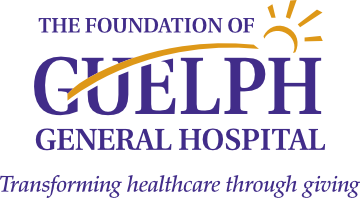Working With Community Health Partners To Successfully Reduce Hospital Readmissions by Patients with Heart Failure
By building strong partnerships, our Hospital is able to improve patient care.
There are some health conditions that often result in numerous visits to an Emergency Department. Heart failure is one of them. When the Hospital looked at how to improve the care for these patients it knew it couldn’t do it alone. Any plan would have to include community partners and two years ago the Heart Failure Collaborative met for the first time.
It’s made up of a number of community health partners including Guelph Community Health Centre, Guelph Family Health Team, Guelph General Hospital, St. Joseph’s Health Centre Guelph, the Waterloo-Wellington LHIN, Guelph-Wellington Paramedics and the YMCA – YWCA of Guelph.
The plan it developed just completed its second year and has resulted in reducing readmissions by an incredible third – far exceeding all expectations.
Deb Hastings, Director of Medicine 7E and 4E/4W at Guelph General Hospital has been involved since the start.
“The process started two years ago when all the partners came together to brainstorm change ideas, we made a plan, and as we started to follow the plan, we started to see that it was working,” she said “But it’s a continuous collaboration with representatives from the Hospital and the Guelph Family Health Team coming together monthly, and the larger group coming together quarterly, and in between there is lots of on-going dialogue.”
With this new plan, once a patient at the Hospital has been identified as having Heart Failure, the Hospital coordinates with the LHIN who arranges a community nurse to meet with the patient within 48 hours of them returning home. Nursing staff at the Hospital also work with the Family Health Team to schedule the patient’s first outpatient appointment with the patient’s family doctor or a specialist. These actions may seem simple enough but are important to ensure the patient’s transfer of care actually happens.
Experiencing heart failure or other significant health events is a life-changing experience and can be quite devasting, Deb explains. “It is scary and overwhelming for them to try to remember to do these things themselves. This coordinated effort ensures their care is continued once they are back home.”
How these patients receive education about their condition and what they need to do to manage it has been reworked. At the Hospital, the information is now broken down into smaller, more understandable bits that nurses share with patients at specific stages of their care and recovery. This way, the patients only receive the information critical for them at the specific stage of care. This makes it easier for them to take in and retain the information. The information they receive in Hospital is then reviewed with the patient by their community nurse once they are back at home.
This is the second successful quality improvement plan by this group of community health partners that has reduced hospital readmissions. This collaborative approach was established five years ago with the objective of reducing readmissions of patients with Coronary Obstructive Pulmonary Disease (COPD).
“Each time we work together on these quality improvement plans it gets a little easier,” Hastings said. “We continue to strengthen our working relationships across our community health partners so patients receive the best possible quality care, not just at GGH, but once they go back home.”

